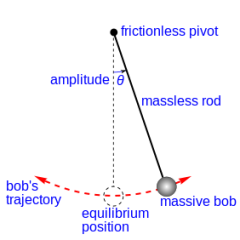Congress appears to be poised to pass an overhaul of NCLB, and in a convenient move have maintained the four-letter acronym standard. While time shall tell if “Ess-Uh” will have more staying power than “Nickle-Bee,” there are probably more pertinent issues to consider. Before doing so, however, it is worth noting as a good lesson in civics that buried at around page 914 (of 1061) of the Every Student Succeeds Act is a posthumous pardon of a early 20th-century heavyweight boxer convicted on racially motivated and thus baseless charges. But I digress (as does the bill, clearly).
The things to consider paying attention to…with citations to the page number of this document, the published text of ESSA, as relevant to the topic:
Testing
Not gone. In fact, not changed all that much. The federal government will still require testing at the same grade levels it currently does (page 54), but what will be different (to an extent) appears to be how these results will be used. Rather than nationwide, uniform and unrealistic goals (100% proficiency by a year ago), states will have the power to establish appropriate goals, have these goals reviewed though some as-yet-to-be-determined process, after which they would be submitted to the federal level (starts on page 80). If the assessment and accountability plans designed at the state level are rejected at the federal level, states are guaranteed a hearing.
Significantly, standardized test scores are no longer the main means of judging a school’s effectiveness. Rather, a combination of factors must be considered, with test scores being part rather than all (page 85).
Interestingly for those of us at the secondary level, the bill also appears to open the door to use of tests such as the ACT and SAT as the high school standardized test (source).
Federal vs. State/District Powers
As previewed above, ESSA seems to mark a distinct shift of decision-making from the federal level back to states and even districts. This appears to include decisions about the “accountability factors” beyond test results, as well as what the achievement goals will be (page 79). What weight test scores are given in evaluating school performance is also determined by the state.
States also are granted power for what sorts of interventions or remediations to put into place for the bottom performing schools and districts (page 87). This leaves the door open for actual intervention and remediation as opposed to punishment and meddling-from-afar that was hallmark of NCLB.
And the Common Core?
Not abolished. Nor are PARCC or SBAC tests. Also, however, not required. States are required to adopt “challenging” standards (page 47), which could be Common Core or whatever else. Text on pages 130 and 859 (and probably other pages…it’s over a thousand pages after all) explicitly prohibit the federal government from coercing or encouraging a state to use the Common Core, and also prohibit the feds from denying a state the right to drop CCSS and adopt standards other than Common Core.
There’s a lot to digest. About 1061 pages of fun. Many people and groups I respect and belong to have come out in favor of ESSA as a replacement of NCLB. Many on both sides of the aisle say it doesn’t go far enough…but I’ve learned that if the extremists aren’t happy, that might be a good thing.
It will be interesting to see how the national dialogue unfolds. It will also be interesting to see what impact this has on state and local policies, teacher morale (change, yet again) and school accountability and support.
The sources I used to help me begin to understand this all, just in case you want to do some digging yourself:
- The actual text of the Every Student Succeeds Act
- A well-crafted and well-hyperlinked overview from EdWeek
- The Washington Post’s take on it all
- The reaction of the National Education Association’s president Lily Eskelsen Garcia
- A piece from the Wall Street Journal as well
And the big caveat: Unless you want your day ruined, don’t read the comments under the articles about this issue. If you want evidence in support of character education in schools, by all means, read the comments, since all you’ll find in the comments are vitriol, teacher-hating, and unfounded half-arguments that aren’t even third-cousins to something close to fact. (Besides, there is (slim) research to suggest that reading the comments actually shapes our understanding of the world more than we might think.)

Pingback: ESSA and Teacher Evaluation | Stories From School
UPDATE: As of Dec 3, the US House of Representatives has passed ESSA by a vote of 359-64; the bill heads to the Senate next week.
Pingback: Mathphilic | Stories From School
Pingback: Understanding the “Every Student Succeeds Act” #ed… | EducatorAl's Tweets
Thank you! What a great introduction to a weighty document–and topic!